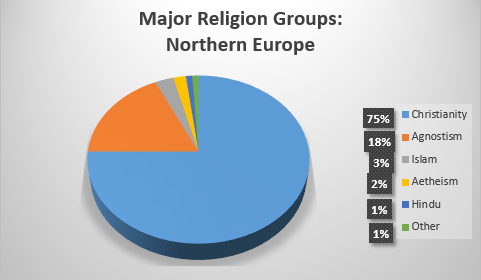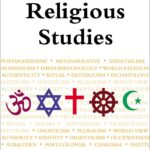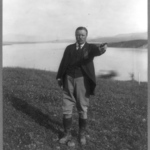Religion in Northwestern Europe: Understanding the Current Religious Landscape

The religious transformation of northwestern Europe
Northwestern Europe has undergone profound religious changes over recent decades, create one of the world’s virtually complex spiritual landscapes. This region, encompass countries like the United Kingdom, Ireland, France, Germany, the Netherlands, Belgium, and Scandinavia, present a fascinating study in how traditional faith intersects with modern secular society.
The virtually accurate statement about religion in northwestern Europe is that it’s experience significant secularization while maintain diverse religious communities and strong institutional frameworks for faith base organizations. This nuanced reality defy simple categorization and require careful examination of multiple factors shape contemporary religious life.
Secularization trends across the region
Northwestern Europe lead global secularization trends, with decline church attendance and religious identification across most countries. Notwithstanding, this secularization manifests otherwise across nations and communities.
In Scandinavian countries like Sweden, Norway, and Denmark, state churches historically dominate religious life. These nations nowadays report some of the world’s lowest levels of religious belief and practice. Nevertheless, paradoxically, many citizens maintain nominal membership in state churches and support their cultural role in society.
The United Kingdom present a more complex picture. While traditional Anglican and catholic attendance has decline importantly, the country maintain establish churches and religious education in schools. Scotland’s relationship with religion differ notably from England’s, reflect distinct cultural and historical influences.
France exemplify strict secularism through its laicize principle, which separate religion from public life more strictly than most neighboring countries. This approach influence everything from education policy to religious symbol displays in public spaces.
Persistent religious diversity and immigration impact
Despite secularization trends, northwestern Europe maintain remarkable religious diversity. Traditional Christianity coexists with grow Muslim communities, establish Jewish populations, and various other faith traditions.
Immigration has importantly reshaped the religious landscape. LargeMuslimm communities nowadays call countries likeFrancee,Germanyy, and theNetherlandss home. These communities haveestablishedh mosqueIslamicmic schools, and cultural centers, contribute to religious pluralism while sometimes create integration challenges.
Hindu, Sikh, and Buddhist communities have besides grow considerably, especially in urban areas. London, Amsterdam, and Berlin host vibrant temples and meditation centers serve diverse immigrant populations and native converts.
This religious diversity has prompt new discussions about accommodation, religious freedom, and cultural integration. Countries have developed different approaches to manage this complexity, froFrancece’s assimilationist model to thNetherlandsds’ historical tradition of pillarization.
The role of state churches and religious institutions
Many northwestern European countries maintain official or semi-official relationships with Christian churches, create unique dynamics between faith and state power.
England’s church of England remain the establish church, with the monarch serve as its head. Bishops sit in the House of Lords, and the church play ceremonial roles in state functions. Notwithstanding, this establishment exists alongside decline membership and influence.
Germany operates a distinctive church tax system, where register members of recognize religious communities pay taxes that fund religious activities. This system support both protestant and catholic churches while extend toJewishh communities and some other recognize groups.
Scandinavian state churches have gradually loosened their official connections while maintain cultural significance. Norway disestablish itLutheranan church comparatively lately, whilDenmarkrk maintain closer ties to its national church.
These institutional arrangements reflect historical compromises between religious tradition and modern democratic governance. They provide stability and resources for religious communities while adapt to progressively secular societies.
Religious education and cultural transmission
Northwestern European countries approach religious education with vary philosophies, reflect broader attitudes toward faith’s role in society.
Many nations require religious education in public schools, but content and approach differ importantly. Some focus on comparative religion and cultural literacy, while others maintain confessional elements tie to historical traditions.
Germany’s system allow parents to choose between religious education provide by recognize churches or ethics classes. This approach acknowledge religious diversity while maintain educational options for faith communities.
France’s secular system prohibit religious instruction in public schools but allow private religious schools to operate alongside public education. This creates parallel educational systems serve different community preferences.
The Netherlands historically develop separate school systems for different religious and secular communities, though this pillarization has weakened substantially. Catholic, protestant, and secular schoolcontinue to operatete under public funding with vary degrees of religious character.
Contemporary challenges and adaptations
Religious communities in northwestern Europe face numerous challenges require creative adaptations to change social conditions.
Decline membership and attendance force many churches to consolidate congregations, sell buildings, and reimagine their mission. Some focus on social services, environmental activism, or interfaith cooperation to maintain relevance in secular societies.
Interfaith dialogue has become progressively important as religious diversity grow. Cities like London and Amsterdam host numerous interfaith organizations work to build understanding between different faith communities and secular society.
Religious freedom issues occasionally generate controversy, peculiarly around Muslim women’s dress, religious symbols in public spaces, and accommodation of religious practices in secular institutions. Different countries have developed vary approaches to balance religious freedom with secular values.
Youth engagement present ongoing challenges for traditional religious communities. Many churches experiment with contemporary worship styles, social media outreach, and social justice initiatives to attract younger generations.
Political dimensions of religious change
Religion intersects with politics in northwestern Europe through various channels, despite widespread secularization.
Christian democratic parties maintain influence in several countries, though their explicitly religious character has oftentimes diminished. These parties typically emphasize social market economics and traditional values while adapt to secular political environments.
Immigration and integration debates oftentimes involve religious dimensions, with some political parties advocate restrictions on Islamic practices or symbols. These debates reflect broader tensions about national identity, cultural change, and religious accommodation.
Religious leaders occasionally intervene in political debates on issues like social welfare, environmental protection, and international relations. Notwithstanding, their influence has broadly declined compare to earlier periods when churches wield greater social authority.
The European Union’s approach to religious freedom and accommodation influences national policies, create some harmonization of approaches while respect national differences in church state relationships.
Economic and social implications
Religious change in northwestern Europe carry significant economic and social implications extend beyond spiritual matters.

Source: slideplayer.com
Church buildings represent enormous cultural and economic assets require maintenance and preservation. Many communities struggle to fund historic church upkeep as congregations shrink, lead to creative solutions like community partnerships and alternative uses.
Religious organizations continue to provide substantial social services, from healthcare and education to refugee assistance and elderly care. These contributions remain valuable still in extremely develop welfare states.
Religious festivals and traditions contribute to tourism and cultural industries. Christmas markets, Kasper celebrations, and historic religious sites attract millions of visitors yearly, support local economies.
Workplace accommodation of religious practices require ongoing attention as religious diversity increases. Employers must balance religious freedom with operational needs, create new human resources challenges and opportunities.
Future trajectories and emerging patterns
Several trends suggest how religion in northwestern Europe might evolve in coming years.
Continue secularization seem likely, but the pace and extent may vary importantly between countries and communities. Some observers predict stabilization sooner than continue decline, as remain religious communities demonstrate stronger commitment.
Religious diversity will plausibly will increase as immigration will continue and global connectivity grow. This may prompt new approaches to interfaith relations and religious accommodation in public policy.
Generational change will continue will reshape religious landscapes, with younger populations broadly show less traditional religious commitment but sometimes greater interest in spirituality and alternative practices.

Source: YouTube.com
Climate change and social justice issues may provide new avenues for religious engagement, as faith communities seek relevant ways to address contemporary challenges.
The relationship between European identity and Christian heritage will probable will remain contentious, peculiarly as the region become more sacredly diverse and secular.
Understand religion in northwestern Europe require recognize its complexity and avoid oversimplification. The region exemplify how traditional faith adapts to modern conditions while maintain cultural significance and serve diverse communities. This ongoing transformation continues shapeEuropeann society in profound and sometimes unexpected ways.






